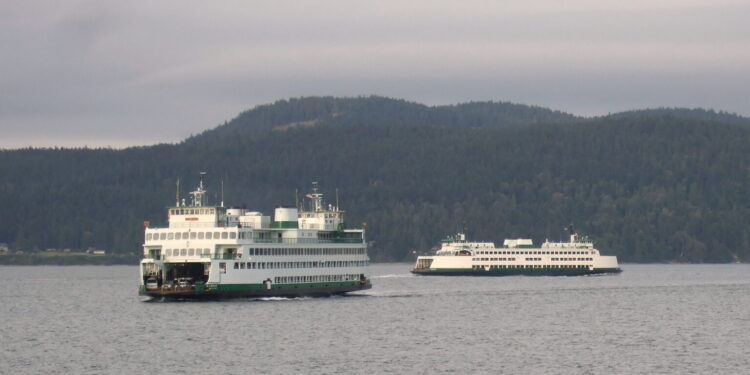The mechanical failure of the MV Wenatchee, Washington State’s first hybrid-electric ferry, just weeks after returning to service has exposed the complex challenges facing the state’s ambitious plan to electrify the nation’s largest ferry system while maintaining reliable service for thousands of daily passengers.
When the Wenatchee was pulled from service after experiencing problems while docking at Colman Dock in Seattle, the incident highlighted the delicate balance between environmental innovation and operational reliability that defines modern public transportation challenges. The breakdown left riders stranded and sent ripple effects throughout an already strained ferry network.
The Wenatchee represents the first step in a $4 billion plan to transform Washington’s ferry fleet through hybrid conversions and new vessel construction by 2040. Officials project the effort could reduce ferry emissions by up to 76 percent, making a significant contribution to the state’s climate goals while modernizing aging infrastructure.
However, the project has already encountered substantial cost overruns, with the Wenatchee’s retrofit exceeding initial estimates by more than $36 million. These financial pressures raise questions about the feasibility of converting additional vessels designed for traditional diesel operations to accommodate modern hybrid-electric systems.
For ferry-dependent communities throughout Puget Sound, the breakdown underscores how environmental ambitions intersect with basic transportation needs. Ferries serve as essential lifelines connecting island communities to employment, education, and essential services on the mainland, making reliability as crucial as sustainability.
The state’s ferry system was already operating under significant strain before adding the complexity of new technology. Pandemic-related crew shortages and an aging fleet have made breakdowns increasingly common, creating chronic service disruptions that affect commuters, tourists, and freight operations throughout the region.
The Wenatchee’s troubles have intensified debate over whether retrofitting existing vessels represents the most cost-effective approach compared to building new hybrid ferries from the ground up. Some transportation experts argue that adapting ships designed for different propulsion systems may create ongoing maintenance challenges that could outweigh environmental benefits.
State officials remain committed to the electrification timeline despite early setbacks, with contracts already awarded for three new hybrid-electric ferries scheduled to begin service in 2028. The success of these vessels will likely determine whether Washington can achieve its ambitious fleet transformation goals without compromising service reliability.
The ferry system’s dual role as both a critical transportation network and a vehicle for achieving climate objectives creates unique pressures not faced by other public transit systems. Unlike buses or trains that can be easily replaced or rerouted, ferry breakdowns create immediate disruptions that can isolate entire communities for hours or days.
For passengers caught in the transition, the environmental benefits of hybrid technology remain abstract compared to the immediate need for dependable service. Commuters planning their daily schedules around ferry departures and tourists hoping to experience Puget Sound’s scenic routes require vessels that operate consistently regardless of their propulsion systems.
The broader implications extend beyond Washington’s ferry system to other states and transit agencies considering similar electrification efforts. The balance between retrofitting existing infrastructure and building new green technology represents a fundamental challenge for public transportation systems nationwide facing pressure to reduce emissions while maintaining service levels.
Washington’s experience with the Wenatchee will likely influence how other ferry systems approach their own environmental transitions, making the success or failure of subsequent conversions crucial for the broader adoption of hybrid maritime technology. The state’s position as a leader in ferry electrification means its challenges and solutions will be closely watched by transportation officials across the country.
As state officials work to address the Wenatchee’s mechanical issues and prepare for additional conversions, the fundamental question remains whether Washington can successfully balance its environmental commitments with the operational reliability that ferry-dependent communities require for their daily lives.







